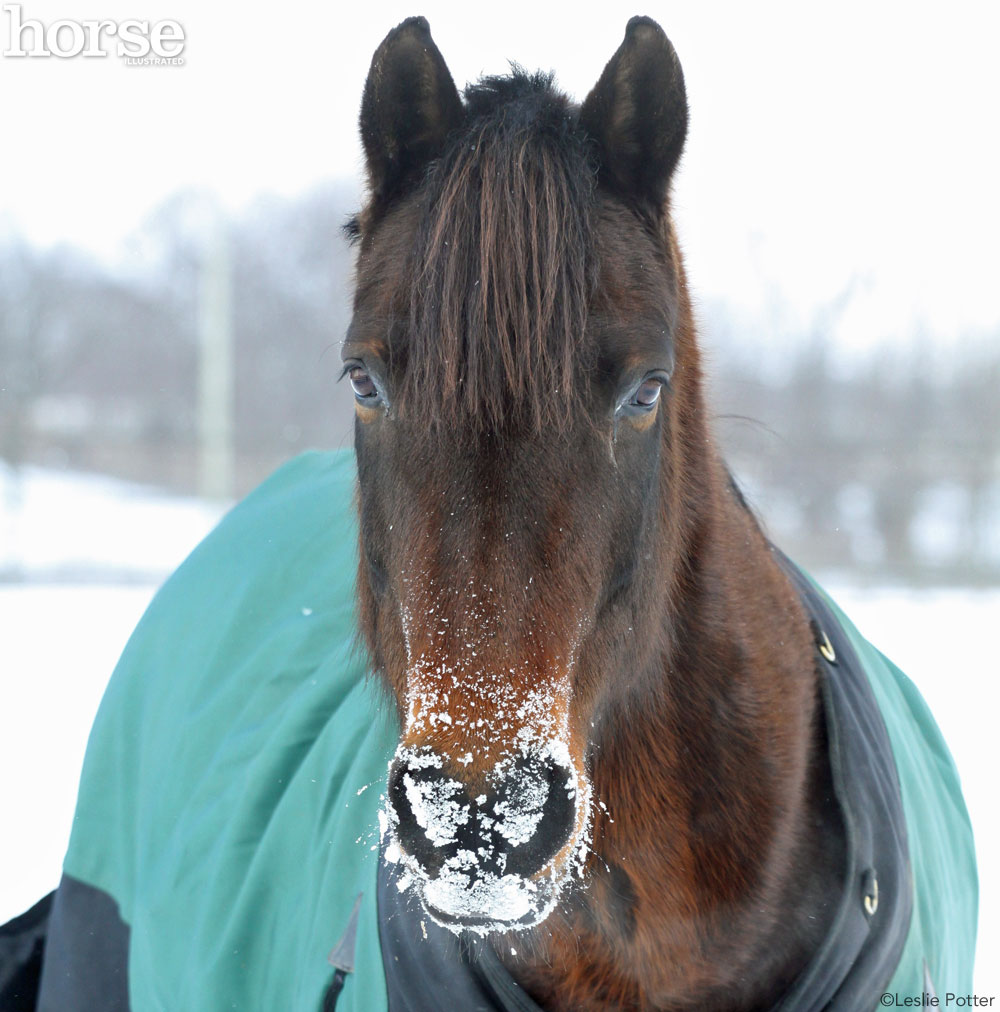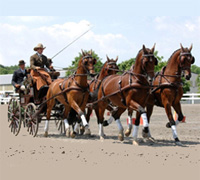
Snow! Cold temperatures! Wind! No question, some locations are deep into winter now. And if you’re a horse owner living in a region that receives a serious dose of winter, there are some important equine health care issues that you should watch for. Most of the time, of course, horses and winter go together just fine. However, you may want to keep an eye out for:
“Snowballs”
Remember to be careful when leading your horse around in snow or ice! After time out in the pasture, you may notice that layers of snow have become packed and condensed into the bottoms of your horse’s feet, causing “snowballs.” This can make it very difficult for your horse to walk safely, and can be very slippery for them, especially in the barn aisle. So be sure to watch for this and keep your hoof pick handy to remove snowballs before they cause any trouble.
Read more about winter hoof-care and shoeing options >>
Water Consumption
You might notice that your horse’s water consumption begins to taper off during winter months. This could result from the fact that your horse may not be as thirsty in cold weather, or your horse might not like chilly water, or he might not be exercising as much, or a combination of all of these factors. To encourage your horse to drink enough, be sure he has access to a salt block, and use a heated water bucket or trough heater even if the water isn’t actually freezing. Most horses prefer warmer water in the winter and will drink more. If temperatures fall below freezing, then using a heated water system is vital.
Weight Loss
Cold temperatures can mean your horse’s body is burning extra calories, which in turn can cause gradual weight loss over the winter. On top of that, your horse’s winter woolies can make him appear more fleshy than he actually is. That means that it’s very important for you to regularly evaluate your horse’s body condition by checking him physically and not just visually, and make diet adjustments as necessary. In many cases, it’s a good idea to go ahead and increase your horse’s hay/feed intake as soon as cold weather hits; your vet can help you decide what’s necessary for your particular situation.
Decreased Exercise
You may ride less in the winter, or the snow may simply discourage your horse from moving around as much as he normally would. Either way, your horse may become somewhat out of shape over the winter, so be very careful not to overdo it when you do ride or exercise him. It’s also critical to properly cool your horse out after winter exercise or else he may become chilled from sweat left on his body.
How do you and your horse cope with winter conditions?
Daniel Johnson is a freelance writer and
professional photographer. He’s the author of several books, including
How to Raise Horses: Everything You Need to Know, (Voyageur Press,
2014). Dan’s barn is home to Summer, a Welsh/TB cross, Orion, a Welsh
Cob, and Mati and Amos, two Welsh Mountain Ponies. Follow Dan at www.facebook.com/foxhillphoto.




Tank heaters help keep water at a nice temperature, so horses will drink more, rather than icy cold water, where they just do not drink enough.